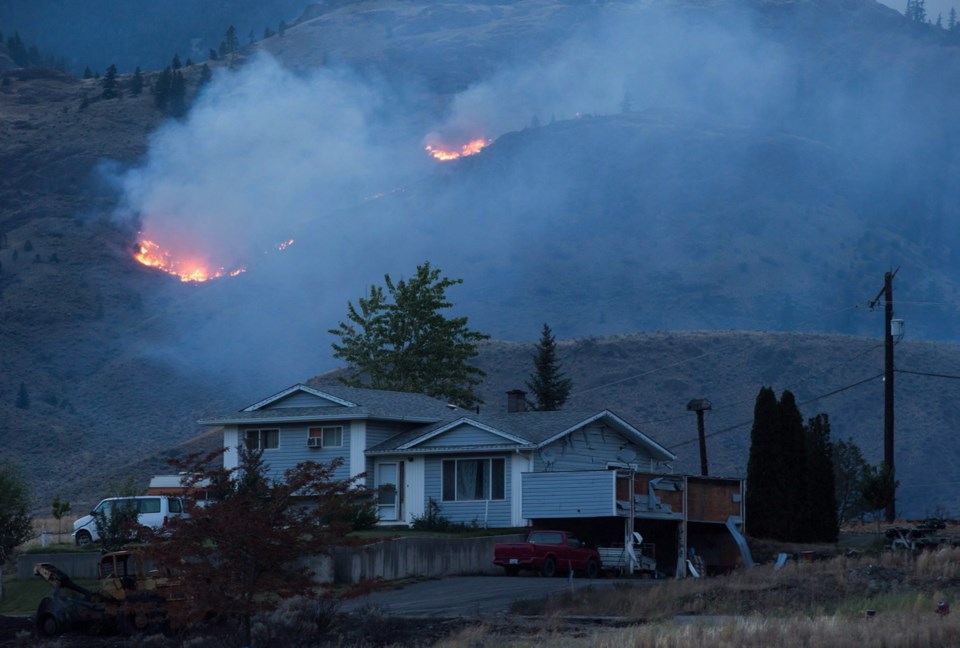 Give this to the people of Kamloops: They know how to throw an Apocalypse.
Give this to the people of Kamloops: They know how to throw an Apocalypse.
When the wildfires hit and the evacuees poured in — thousands of them from such places as Ashcroft, Cache Creek, Williams Lake and 100 Mile House — the city responded as though it were auditioning for a Disney movie.
Residents opened their wallets. They opened their homes. They opened their hearts (and lungs, which then filled with smoke).
Typical was the Facebook post from the guy who not only volunteered to use his pickup truck to haul trailers from the fire zone, but offered a vacant basement suite “with enough room that a family of four could squeeze in without wanting to murder each other (any more than usual).”
Somebody else offered 30 acres of pasture land and 150 bales of hay. A group of mostly trucking-related Kamloops businesses threw a tailgate party that raised $300,000. Evacuees were offered free pet food, bus passes, denture repair, yoga classes, art gallery visits, gym access and kids’ camps. Hotels halved their room rates at the busiest time of year. The Sikh community provided a nightly dinner for evacuees. So did the casino.
When the combination of thick smoke (on some days Mount Peter and Mount Paul were barely visible across the South Thompson River) and higher priorities led to the cancellation of Sunday’s marathon, organizers put on a free breakfast for evacuees instead.
Pop-up campgrounds sprouted all over town, from the Tk’emlupss Powwow grounds to neighbourhood parks. Grocery store shoppers donated loyalty program points to the evacuees. The city waived parking fees in designated lots.
And the people! What CFJC television called “a group of moms collecting donations on Facebook” snowballed into a giant clearing house for food, clothing and hygiene items. I met nurses and care aides who went straight from their paid jobs to volunteer shifts with the evacuees. I know a woman who stayed up all night greeting elderly and infirm 100 Mile House evacuees who Dunkirked into town by whatever means possible — private car, aging school bus. Her husband has been spending his mornings flipping pancakes in a Sally Ann mobile kitchen.
Some of those responding to the wildfires have done so dramatically. Former Sidney/North Saanich Mountie (and Tour de Rock rider) Ryan Grottolo, now posted to Chilliwack, made the news by jumping on an ornery ranch horse and riding it (bareback, no less) to safety as the flames advanced near Williams Lake.
Others are more low-key. Each day, a small army of dog-walkers trundles around Kamloops’ Riverside Park (where dogs are usually banned) with some of the 800 animals housed at an emergency pet shelter. The CBC had a story about volunteers filling a hot water bottle with Starbucks coffee to warm and revive a near-death reptile. Everyone, it seems, wanted to help after the fires hit.
So imagine my dismay when, finding myself in Kamloops with time to kill, I volunteered to pitch in, only to be pitched out.
“We don’t need you,” I was told.
Seems they had all the volunteers they needed, or at least all the volunteers whose skills were limited to A) typing slowly and B) napping.
It’s a bit humbling to go flying to the rescue, only to discover that you are not so much Superman as superfluous. It’s disconcerting to realize you are not as indispensable as you imagine, that when the next Great Flood arrives and they’re choosing who gets to board the ark, you’ll be left treading water with the performance artists and search engine optimization specialists, watching the farmers and physicians sail away.
But I digress. This summer’s wildfires have been devastating but, as was the case with Fort McMurray, the response has been impressive. Too often we leave it to government to solve every problem. In Kamloops, it felt like everyone — governments, businesses, institutions, individuals — decided to step up.



